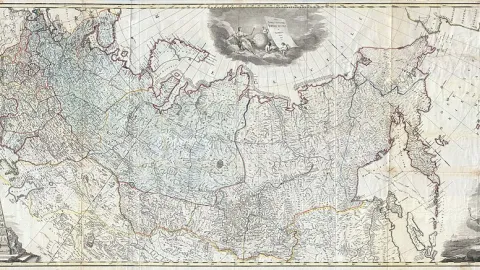Substantiating Infringement (or Risk Thereof) at the UPC: Divide & Conquer or One To Rule Them All?
September 4, 2025
Traditionally, patents are territorial rights: their effects are limited to the territory in which they take effect, and therefore any infringing acts are necessarily localised in that territory. Unlike before the national courts, the question of infringement before the UPC is not dealt with under the respective national law of each Contracting Member State (CMS), but under the harmonised substantive law of the UPCA. Unlike – though sometimes possible1 – national courts, the UPC may not only need to assess whether the allegedly infringing product falls within the scope of the claims, but also in which territories the patent is (threatened to be) infringed – at least in the context of European bundle patents.
Preliminary injunctions
In one of the first injunction cases: myStromer v Revolt Zycling (UPC_CFI_177/2023), the Local Division of Düsseldorf, after granting a preliminary injunction, denied a request for correction and/or extension of the order to cover also Austria (where the patent was in force, but it was allegedly inadvertently not explicitly mentioned in the PI application). The request for correction under R. 353 RoP was dismissed, since inter alia, the Claimant had only substantiated infringement in Germany, the Netherlands, France and Italy and had not dealt with infringement in Austria at all. In relation to Art. 34 UPCA, the court noted that this reference cannot be relied upon by the Claimant when assessing any obvious errors under R. 353 RoP. From this order, it seemed that something more may be required for an injunction covering all the CMSs.
This point later came to the UPC Court of Appeal in Sumi Agro v Syngenta (UPC_CoA_523/2024). The Defendant inter alia argued on appeal that there was no risk of (imminent) infringement in several markets, since the product was not marketed there and that in some there was not even a marketing authorisation granted. At the same time, the Claimant requested extension of the territorial scope of the order to cover also Romania, since it was not a CMS at the time when the order was first issued. The Court of Appeal held that, in relation to the territorial scope of the order, according to Art. 34 UPCA, “injunctions, as a rule, will cover all those CMSs [for which the European patent has effect]” and that any restriction to this principle would require the presence of certain circumstances, such as when the Claimant has restricted the territorial scope of its action – thereby acknowledging the ne ultra petita principle under Art. 76(1) UPCA. It was explicitly noted that, even though the Defendant did not hold marketing authorisations in some CMSs, or had not marketed the allegedly infringing product there, this did not negate the risk that it could later obtain marketing authorisations and begin marketing. Hence, the final order covered the all the CMSs where the patent had was in force, including Romania.
In a recent case Boehringer Ingelheim v Zentiva (UPC_CoA_446/2025 and UPC_CoA_520/2025), the Court of Appeal overturned the initial finding of the Local Division of Lisbon, as to what is considered imminent infringement to a sufficient degree of certainty, and granted the preliminary injunction with effect for all the CMSs. Regarding the territorial scope, reference was again made to Art. 34 UPCA and that there are no circumstances in this case justifying any restriction, even though the court clearly acknowledged that Zentiva did not hold any marketing authorisations outside Portugal and the substance of the case, including all material aspects argued, related solely to the threat of infringement in Portugal. From this case, it seems clear that a proven threat of infringement in one CMS is enough to provide basis for a preliminary injunction covering all the CMSs, despite the fact that under the same test,2 there objectively was not a threat of infringement in any other CMS, and thereby no irreparable harm to be imminently caused without granting such an injunction.
European patents with unitary effect
For EPs with unitary effect, having uniform protection and equal effect in all the CMSs, a pan UPC injunction seems more justified and complementary. Nevertheless, at least when compared with the unitary character for EU Trademarks,3the unitary effect in itself may not be enough to justify an automatic pan UPC wide injunction as a rule, at all times.
In Insulet v EOFlow (UPC_CoA_768/2024), the Court of Appeal ordered a preliminary injunction for all the CMSs based on an EP with unitary effect. In one of its secondary requests, the Defendant requested exclusion of certain countries from the injunction order – one argument being that in several CMSs, the Claimant does not offer its products (alleging no risk or market share loss or price erosion) and in a few other, the Defendant’s exclusive European distributor does not offer the allegedly infringing products. The Court of Appeal reiterated its reasoning that under Art. 34 UPCA “as a rule, injunctions will cover the territory of those CMS for which the patent has effect, unless certain circumstances justify an exception” and referred to its earlier order in Sumi Agro v Syngenta. Whilst the court unsurprisingly saw no reason to limit the injunction to CMSs where the Claimant offers its own products, it was notably also explicitly acknowledged that the fact the infringing products are not being offered in some CMSs by the Defendant does not justify excluding those from the injunction.
Further in Dyson v Dreame (UPC_CFI_387/2025), an EP with unitary effect was enforced among the CMSs, while a national designation of the EP was enforced for Spain (non-CMS). Despite the fact that Defendant 1’s allegedly infringing products seem to have been undisputedly marketed only in five CMSs by Defendant 2 (the official distributor), Defendant 3 acted as the Authorized Representative in the EU (and was considered as an intermediary under Art. 63 UPCA), and Defendant 4 only acted on the Swedish market, the Local Division of Hamburg, while referring to the ruling of the Court of Appeal in Insulet v EOFlow, granted a preliminary injunction in all CMSs against all the Defendants 1-4. Regarding Spain however, the injunction was only granted against Defendants 1 and 3 (Defendant 3 served as an anchor defendant for Defendant 1, the website operator of almost all the relevant country specific websites, including Spain), but not against Defendants 2 and 4, since at least a plausible allegation of infringing acts in Spain was not proven by the Claimant, in order for the UPC to even assume jurisdiction with respect to the infringing acts in Spain as well.
Permanent injunctions
In the context of decisions on the merits, the question of the territorial scope of a permanent injunction seems even more pertinent, even though Art. 34 UPCA does not distinguish between either.4 Detailed assessment of infringement assertions by the Claimant were made by the Paris Local Division in Seoul Viosys v Laser Components (UPC_CFI_440/2023). With respect to the CMSs where the patent was in force, the Claimant did not provide evidence of infringement outside France. It was explicitly criticised by the court that the Claimant relied on the Defendant’s website, through which it was allegedly possible to order infringing products throughout Europe, since the Defendant (a French entity) was only listed to be selling in France and no action was taken against any other entity listed therein, and only one purchase from France was made. The court noted that the Claimant bears the burden of proof to provide specific and demonstrable facts in support of its claims (under R. 13m and R. 171.1 RoP), even though the Defendant had not contested the measures requested. In relation to Claimants request to also extend its claim to the UK, while the court confirmed that such a request is admissible in light of C‑339/22 (BSH Hausgeräte), it reasoned that the Claimant still has to specifically substantiate the existence of acts of infringement committed by the Defendant, in that non-CMSs territory, which was not the case here.
A rather different approach was considered in infringement proceedings in Hurom v NUC (UPC_CFI_159/2024). Contrary to the Claimant’s assertions, the Mannheim Local Division did hold that infringing acts committed in France and Germany do not alone suffice to extend the remedies sought to other CMSs. It reasoned, referring to its systematic presence in Chapter VI “International jurisdiction and competence” in the UPCA, that Art. 34 is not a provision of substantive law and therefore does not extend the territorial scope of the remedies to other CMSs, once infringement is established in one CMS only. However, the court nevertheless ordered an injunction for the whole UPC territory where the EP was in-force, because the Defendant did not sufficiently dispute infringement in the other countries. Therefore, infringement in all CMSs was accepted as a non-disputed fact under R. 171.2 RoP. Merely alleging the lack of substantiation and evidence in reference to R. 13.1(l)(i) RoP was not considered as an effective denial, given that the UPCA does not require any test purchase or any specific substantive requirement in order to establish the offering and placing on market of the contested embodiment.
Although each case is dependent on its circumstances, the approaches in the two rulings described above seem to be in stark contrast with one another. While the Paris Local Division emphasized the Claimants burden of proof to provide specific and demonstrable facts in support of its claims (even if not contested by the Defendant), the Mannheim Local Division adopted a somewhat “reversed burden of proof” approach for the Defendant to sufficiently dispute, along with appropriate evidence, any allegation of infringement (or risk thereof).
In another infringement case on the merits at the Paris Local Division in Hurom v NUC (UPC_CFI_163/2024), the Claimant inter alia requested to extend its claim concerning alleged acts of infringement to Poland (non-CMS), along with France, Germany, Italy and the Netherlands as initially filed and where the EP remained in force. Although with respect to the CMSs, the Defendant succeeded in its invalidity plea, the Claimant’s claim for inclusion of Poland was considered admissible in light of C‑339/22 (BSH Hausgeräte). However, the claim was not allowed, not because of invalidity, but since the Claimant had not specifically substantiated infringement in Poland – as noted by the court “[i]t is only alleged that the Defendants’ websites are accessible throughout Europe, and the turnover achieved by Defendant 1 in Europe is given without any indication as to whether the latter actually relates to the allegedly infringing products”. Relying yet again on products being sold via alleged infringer’s website throughout Europe was not sufficient in this case even outside CMSs.
Based on the cases mentioned above, a country-by-country approach seems to be applicable for non-CMSs, whereas for CMSs, various UPC first instance divisions apply different standards to the evidence of infringement required to justify an injunction in all CMSs where the patent is in force. While non-availability of marketing authorisations in certain CMSs or acceptance of the fact that any allegedly infringing products are not being offered for certain territory is apparently not sufficient and still justifies an injunction in all CMSs, others deny extending injunctions based on references to general indications on a website or a test-purchase made for one CMS only. Importantly, the Court of Appeal seems to have adopted a much more Claimant-friendly approach for a pan UPC injunction for all the CMSs, based solely on Art. 34 UPCA.5However, in view of the territoriality principle, and even though the UPC is a court common to the CMSs, the provision of an automatic blanket cheque for an injunction, and especially a permanent one, in all 18 CMSs without requiring actual evidence of infringement in each such CMS could seem as rather disproportionate and imbalanced. Arguments based solely on Art. 34 UPCA and possibly also invoking procedural economy and efficiency of the UPC should not outweigh the territorial nature of patent rights and the Claimant’s burden to prove infringing acts (or threats thereof) of each such right, at least in the context of European bundle patents, in each territory for which it seeks injunctive relief. It remains to be seen whether the CJEU will ever consider this approach as perhaps not complying with Union law, notably the Enforcement Directive 2004/48/EC.6
- 1In the context of cross-border injunctions, the national courts are faced with a similar question, with respect to assessing infringement in each territory, under their respective national law, for which an injunction is sought by the Claimant.
- 2The test for imminent infringement developed in this case was such that there is no further administrative step or procedure required by the Defendant and it is only its self-restraint that is preventing the actual act of infringement, which the right holder is not able to ascertain in time, before it actually occurs.
- 3In C-223/15 (Combit), following C-235/09 (DHL Express), the CJEU essentially ruled that injunctions based on unitary EU Trademark rights not covering the whole EU territory are indeed possible and do not contradict their unitary character (considered in a linguistic context relating to the likelihood of confusion existing in only part of the EU – this argument may be less persuasive in patent infringement).
- 4According to the published travaux préparatoires, Art. 34 UPCA originates from Art. 16 of the preliminary set of provisions for the future legal instrument on the EU Patent Jurisdiction of 19 March 2008 (ST 7728 2008 INIT). That provision was itself based on point 17 of the Council working document of 27 February 2008 (ST 7001 2008 INIT), which sought to apply EU-wide effect primarily to preliminary injunctions, the award of damages, and the revocations of patents.
- 5Note the clear conflict in reasoning of the Mannheim Local Division in Hurom v NUC(UPC_CFI_159/2024 at [107]) with respect to any alleged legal basis in Art. 34 UPCA for the territorial scope of injunctions at the UPC.
- 6See, for example recital (22) in connection with Art. 3 of the Enforcement Directive 2004/48/EC, which provides a general obligation on the courts of the Member States (thereby also the UPC), to ensure the proportionality of the provisional measures as appropriate to the characteristics of the case in question, and that such measures are justified where any delay would cause irreparable harm to the holder of an intellectual property right. See also Art. 7 of the TRIPS Agreement, which provides for a balance of rights and obligations in relation to the protection and enforcement of intellectual property rights.
You may also like














